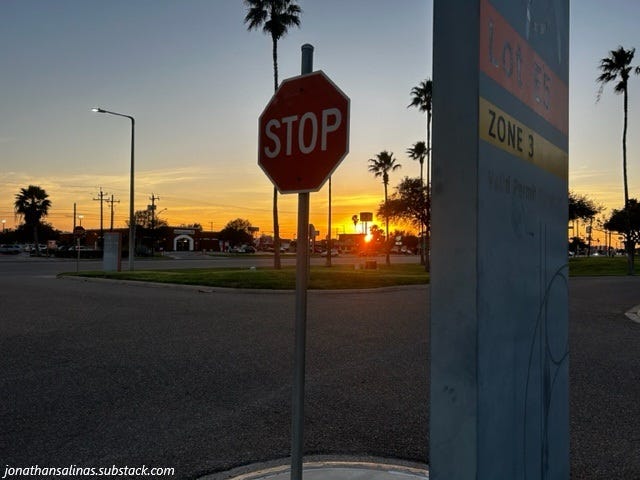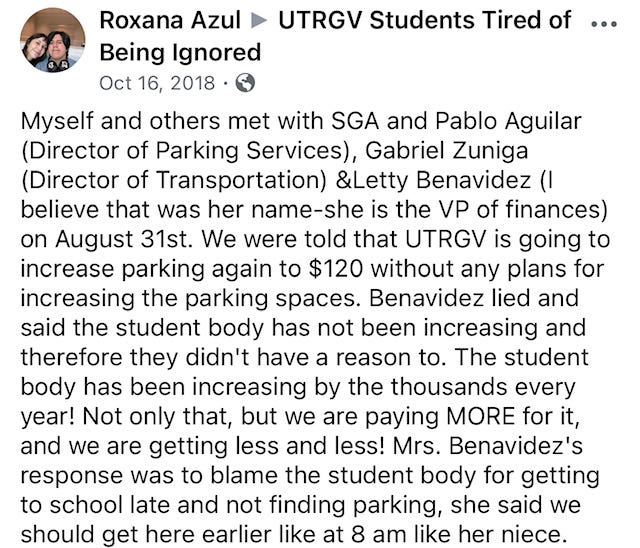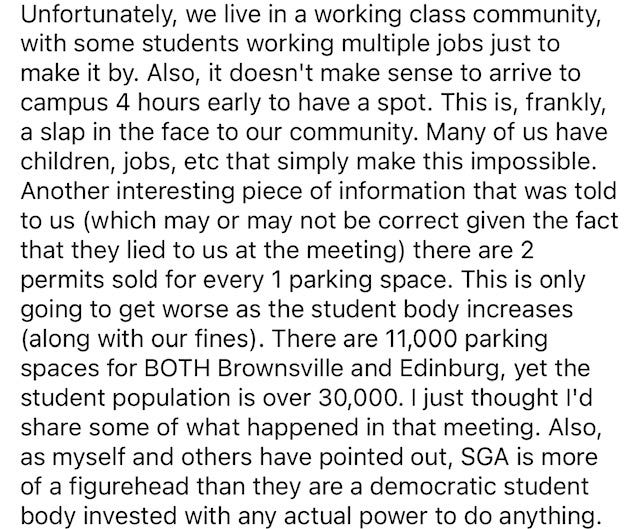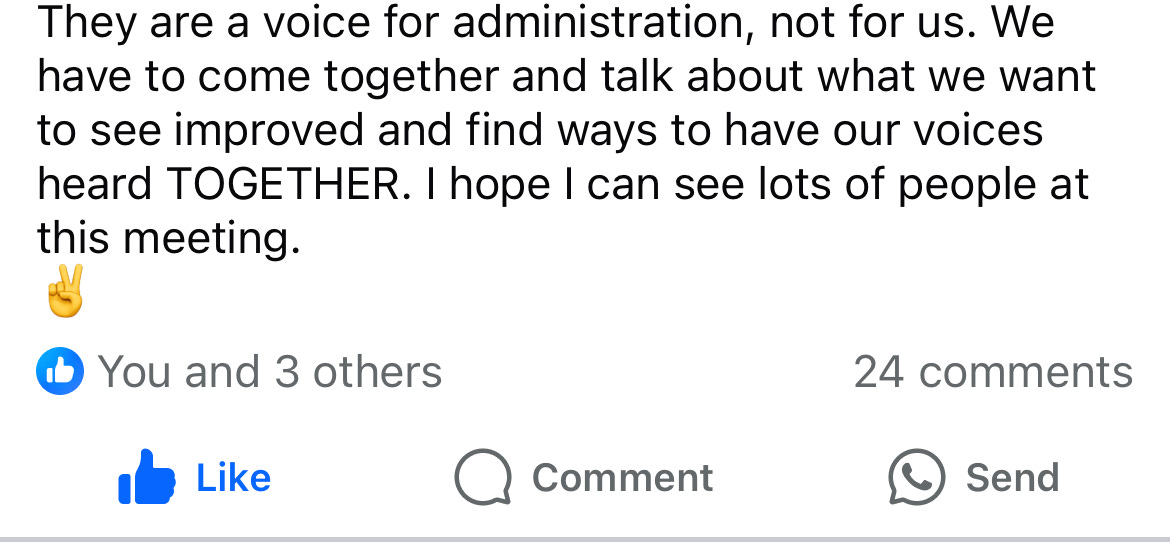University parking director responds to questions
Says portion of permit and citation profits go to police and their campus surveillance programs
A university parking official responded to questions I posed, regarding UTRGV’s parking permit and citation proceeds. Rodney Gomez, Executive Director for the parking and transportation department, answered the questions.
Related Coverage:
His answers echoed common administrative talking points, about how there just isn’t enough money for a parking garage and how permit and citation fees are used to fund beneficial services for students, faculty and staff. Revealingly, and hidden amongst nice-sounding things, was the admission that profits from parking permit and citations get funneled back to campus police and surveillance.
To the question of where funds, which exceeded over two million dollars in 2024 went, Gomez repeated the lie that his department is “self-funded”, as if he and his colleagues were posted-up outside Walmart selling chocolates and cookies or working part-time jobs to fund the parking maintenance on campus:
“Parking Services is self-funded—it does not receive funding from the state or tuition. Revenue generated from permit sales and citations funds parking lot improvements and construction, campus safety, security, police services [emphasis my own], lighting and surveillance cameras [he forgot to say ‘and software’] in the parking areas, parking technology, and operations.”
Gomez, again, is incorrect to say his department is ‘self-funded’. If it was, it would mean that he and his colleagues pay for operations out of their own pocket, which they don’t. This publication for example is in large part self-funded, as I currently only have about a dozen paid subscribers. I have to work and hustle to pay bills. Gomez and his colleagues should take a philosophy course on ontology, to understand the true meaning of the word ‘self’.
UTRGV’s parking and transport department is funded by students, faculty and staff who purchase permits and pay citations. The fact that they do not receive state funding or tuition funds is deceptively utilized to advance the misnomer that they’re ‘self-funded’. (Indie parking and transport? Give me a break.)
Notice also how Gomez admits that parking permit and citation monies go to the cops, euphemistically described as ‘police services’. This fact is not often highlighted by the department, which emphasizes the word ‘infrastructure’ in their messaging to trick people and gullible student representatives into thinking monies go towards academic buildings, which they do not. Permanent university funds (PUF) pay for that infrastructure. What they mean when they say ‘infrastructure’ is parking lot upkeep and, of course, police ‘infrastructure’.
However, they never disclose how much money actually goes to what.
To the question of how UTRGV parking proceeds compare to other institutions, Gomez said he is not aware of how much revenue others make, adding that his department possesses the lowest rate with their ‘Zone 1’ parking permit at $60.
When asked about a parking garage—is one being built or not—Gomez misuses capitalist economics lingo to suggest there is no interest in one being built. He suggests need for one is absent, given underwhelming purchase of parking permits, although he has it backwards. The reason people refuse to pay for their ‘service’ is because it’s more of a disservice, whereas if a garage that guaranteed quality parking was built near campus people would be more inclined to purchase permits. Perhaps he is unaware of the adage that says ‘build it and they will come’.
He then says building a parking garage would necessitate an increase in permit fees. This, however, is only true under the assumption that a bloated and overpaid bureaucracy remains. Critics, like myself, argue that instead of “substantially” raising costs on students, the university should “substantially” cut the “costs” of administrative salaries in order to build it.
“UTRGV assesses supply and demand for parking on a continual basis. While it may become a necessity in the future, there are currently plenty of underutilized parking spaces (Zone 1 specifically). The cost for construction of a parking garage, at minimum, would be in the neighborhood of $20,000 per space. (For purpose of comparison, a surface lot costs an estimated $3,500 per space.) Funding such a structure would cause permit prices to increase substantially (we would not receive state or tuition funding to pay for the garage) and would not result in the same quantity of spaces that could be achieved with surface parking. Many Texas public universities with parking garages sell parking permits in the range of $400-$600.
As my old Marxist comrade, Roxanna Menchaca, so eloquently and lucidly pointed out in a Facebook post in 2018, the relationship between pricing and parking availability is a fantasy:
Explanations of this sort from administrators like Gomez are meaningless, as they do not actually specify how much money is allocated to specific aspects, line item by line item. The only real way of looking at what’s going on is to demand UTRGV open their books to the public, so we can see how money is actually spent. This way we’ll know how much money is spent towards things like parking lot upkeep and repairs. I have asked Gomez for this information and currently await his response.
We, specifically, need to know how much of this money goes back to the cops and for what purposes. This fact—that permit and citation fees go to the police—is the most revealing of all, as it is not at all well-advertised, let alone well-known. If it was generally known that parking permit and citation money was funneled back to campus police, and their surveillance programs, many would certainly boycott their purchase. As they should.
jonathansalinas@substack.com








